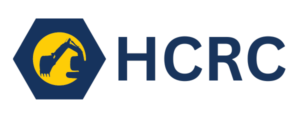I see a lot of mistakes on resumes. Some common ones are not including dates of employment, using confusing formatting, and making typos or spelling mistakes. But the one that might be costing you the job is not distinguishing yourself from other candidates who may have similar backgrounds to yours. In this article, we’ll discuss how it isn’t necessarily what you do, but how you do it better.
Let’s face it, in the world of contracting, for most companies or business owners it comes down to one thing: the bottom line. If you have spent any time in the industry this should not surprise you at all. So what, you may ask, does this have to do with my resume? Well, quite a bit as it turns out; to distinguish your resume from those of other, similar candidates, it is a whole lot less about what you do and more about how your contributions have affected the bottom line.
Don’t get me wrong, what you do is important, but what will get you to the top of the resume pile is bringing to the reader’s attention these three important things:
- How you have made money
- How you have saved money
- How you have solved problems
We call these “highlighted accomplishments.” Let’s dive in a bit deeper to see how to integrate this information into your resume.
What accomplishments are you most proud of in your career up to this point? What have you done as an individual or even as a member of a team that has had a positive impact on the bottom line of your projects? We generally want to keep this short and to the point. As a rule of thumb, try and keep it to 3-4 sentences per accomplishment. We also want to quantify these results as well, ideally in terms of money made or saved. Including a bit of project data can be helpful as well. Below is a format that we suggest our candidates use. We recommend inserting this below your employment dates and after any notable duties that you’ve listed.
Name of Project: Contract Value: $$
Position held on project: Completion Date:
Scope of work performed:
Accomplishment: Here you will briefly explain what you did to impact the project, and quantify your results in $$, % profit increase, and/or time saved due to early completion.
Some things to keep in mind when choosing your highlighted accomplishments are:
- Keep them recent. What you did over a decade ago doesn’t carry much weight
- Keep them simple, without divulging details. These are meant to set you apart from other candidates, and to boot, will serve as a conversation starter when you get that interview.
- Share quantifiable results (as noted above).
Many people don’t have access to or can’t remember the amounts made or saved. In that case we suggest using terms such as “estimated” or “approximately”. If you aren’t comfortable disclosing monetary sums, perhaps using percentages can help to quantify your accomplishments, although in our opinion listing monetary figures is more effective. When speaking of time, as a means of highlighting early completion, here again you can estimate using terms like “approximately,” or “thereabouts.”
Of the resumes (across the management spectrum in civil contracting) that have come to our attention recently, roughly 80% of them lack any defining accomplishments. By using this guide, you can become part of the other 20% and stand out from the crowd.
We hope you find this useful. Please feel free to email us a copy of your resume for a free audit with one of our consultants. Your information is confidential and will not be shared with any other parties.
Taylor Maurer runs the talent acquisition firm HCRC as senior managing partner. He is a professional heavy civil construction recruiter dedicated to attracting and retaining high quality talent.






